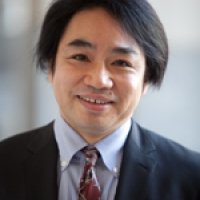Game Change in the Asia-Pacific: The South China Sea and TPP
China has recently been a major force in political games in the Asia-Pacific. For example, it has succeeded in partly disengaging the United States from the trade framework in Southeast Asia by promoting “low quality” Free Trade Agreements in the region. China has also viewed the ASEAN Regional Forum and East Asia Summit as convenient non-binding and consensus-based arenas that allow Beijing to avoid dealing with hard issues such as maritime disputes in the South China Sea. The Obama administration’s much-discussed “Asia Pivot” is an attempt to reinsert the United States into regional political games and is perhaps most evident in the administration’s focus on the Trans-Pacific Partnership multilateral FTA. How is the United States’ reemergence as a regional player changing the existing components of the political game? What trade and strategic initiatives is Washington undertaking? How will other regional players, such as Japan and India, respond to American and Chinese moves?
Overview
China has recently become a major force in political games in the Asia-Pacific. According to Wilson Center Japan Scholar Takashi Terada, speaking at a March 27 Asia Program event, cosponsored by the Kissinger Institute on China and the United States and the Program on America and the Global Economy, Beijing has succeeded in partly disengaging the United States from the trade framework in Southeast Asia by promoting “low quality” Free Trade Agreements (FTA) in the region. China has also viewed the ASEAN Regional Forum (ARF) and East Asia Summit (EAS) as convenient non-binding and consensus-based arenas that allow Beijing to avoid dealing with hard issues such as maritime disputes in the South China Sea.
The Obama administration’s much-discussed “Asia pivot,” according to Terada, is an attempt to reinsert the United States into regional political games, as evidenced by a change in the focus and nature of different international arrangements. This shift is perhaps most evident in the administration’s focus on the Trans-Pacific Partnership (TPP) multilateral FTA. The attempt to create a high-quality regional framework consistent with World Trade Organization standards on intellectual property and labor stands in stark contrast to the proliferation of bilateral FTAs, promoted by China, that focus on tariffs and are riddled with exemptions and exceptions.
America’s involvement in the regional order and its preference for standardized rules-based agreements is also evident in changes in Asian security architecture. Previously, regional discussion on security focused on “soft” or non-traditional security issues through a pattern of dialogue stressing consensus and non-interference in sovereign affairs. Since the end of the George W. Bush administration, however, the United States and other democratic nations in the region have begun to construct a rules-based framework that tackles traditional “hard” security issues, such as territorial disputes. This has been marked by a shift away from a focus on the ARF, which has the reputation of being more a discussion session than a meeting with clear political goals, and greater emphasis on more substantive deliberations at the EAS, in which the United States is now a full participant.
Such a shift is a concern for Beijing, which has significant territorial claims in the South China Sea. The body of water is an important fishing ground that has an estimated 23-30 billion barrels of oil under its floor. It is therefore, according to Terada, no wonder that Beijing, thirsty for fuel, sees the sea as an area of strategic interest. China’s claims are contested by numerous states in the region, and Beijing has usually stressed its position on the South China Sea in bilateral talks with these nations. The White House’s insistence on using the EAS to “address strategic and security challenges” by reaffirming “international rules and norms in these areas,” thus poses problems for Beijing’s approach to these disputes. China is therefore engaged is subtle attempts to resist greater U.S. engagement in the region.
These attempts include trying to influence Tokyo’s approach towards regional integration. Japan’s economy is twice the size of the accumulated current membership of the TPP. Japanese and American membership in the agreement would therefore make the TPP greatly attractive to other potential members, further strengthening American engagement in the region. According to Terada, Tokyo’s interest in the TPP has resulted in a more flexible Chinese stance towards Japan, designed to present Tokyo with alternative options to TPP ascension and other developments that China views in the context of American attempts to enter the region. China has recently been enthusiastic about proposals from Tokyo to discuss, along with Seoul, an investment treaty as part of a broader trilateral FTA, a framework that Beijing previously resisted. China has also been more amenable to Japanese preferences for regional dialogue, as Beijing moves away from its insistence on discussions that include the ASEAN countries and only Korea, Japan, and China (the ASEAN+3 model) and towards a broader model, which, in addition to these countries, incorporates New Zealand, Australia, and India (or ASEAN+6). Despite these concessions, Japan is, according to Terada, still committed, particularly in the security arena, to a rules-based order in Asia that includes the United States as a key player.
By Bryce Wakefield
Robert M. Hathaway, Director, Asia Program
Speaker

Hosted By

Indo-Pacific Program
The Indo-Pacific Program promotes policy debate and intellectual discussions on US interests in the Asia-Pacific as well as political, economic, security, and social issues relating to the world’s most populous and economically dynamic region. Read more

Kissinger Institute on China and the United States
The Kissinger Institute works to ensure that China policy serves American long-term interests and is founded in understanding of historical and cultural factors in bilateral relations and in accurate assessment of the aspirations of China’s government and people. Read more
Thank you for your interest in this event. Please send any feedback or questions to our Events staff.










